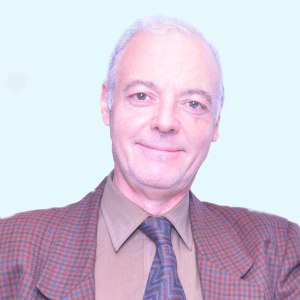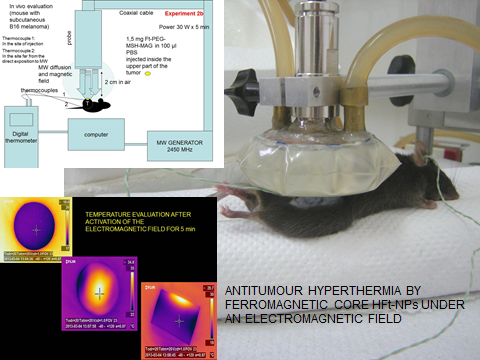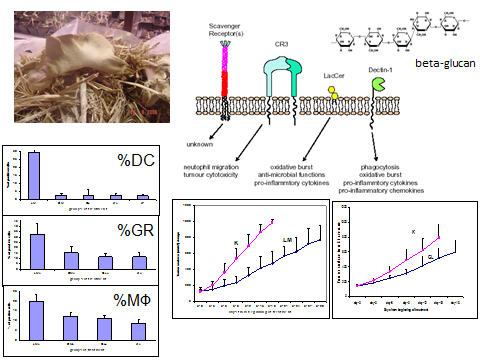Laboratory of Immunotherapy
Head of the Laboratory:
Dr. Luca Vannucci, M.D., PhD.
Phone: +420 296 442 394
Email: vannucci@biomed.cas.cz
| MUDr. Luca Vannucci, Ph.D. | Head of the Laboratory |
| RNDr. Petr Šíma, CSc. | Scientist |
| MUDr. Anna Fiserova, CSc. | Scientist |
| RNDr. Pavol Lukáč | PhD student |
| Mgr. Lenka Rajsiglová | PhD student |
| MUDr. Paolo Tenti | PhD student |
| Mgr. Fabián Čaja | PhD student |
| MUDr. Dmitry Stakheev, Ph.D. | PhD student |
| Ing. Jaroslava Vosmíková | Research assistant |
| Eva Truxová | Technician |
The Laboratory of Immunotherapy at the Institute of Microbiology of the ASCR, v.v.i. performs research mainly in the field of immunology of the tumor microenvironment.
 Studying the development of tumors in experimental models that allow to follow their evolution, we evaluate:
Studying the development of tumors in experimental models that allow to follow their evolution, we evaluate:
– how important structures of tissues adapt to the development of the tumor,
– how these changes depend on local immunological phenomena
– how these phenomena may favor the development of the tumor or its removal
– how we can increase or re-activate our defenses against cancer and metastasis both at local (in the tumor) and systemic (in the organism) levels.
For this, we study
– the the tumor microenvironment by evidencing its structures, and histological and immunologogical features useful for both new approaches to diagnosis and therapy (experimental model of intestinal cancer with or without chronic inflammation). In our studies we evaluate also the importance of microbiome using germ-free (GF = gnotobiologic, totally sterile, without microbiome) animals in comparison to conventionally reared animals (CV = with microbiome).
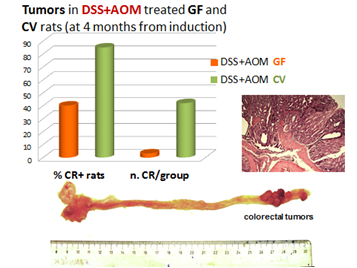
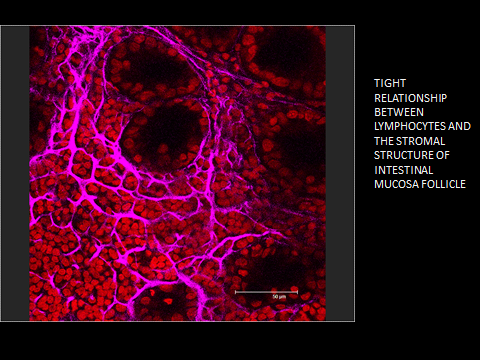
We also started the analysis of human tissues from patients with bowel cancer (in collaboration with the Thomayer’s Universitary Hospital of Praga 4, and other hospitals), an important step to verify the validity on man of our experimental observations in animal models and put the bases for application of our restults to patients.
– the development of nanoparticles composed of natural molecules able to enter not only in tumor tissues but also directly inside the tumor cells. By these approach we are looking for targeted therapies able to aggress cancer with high efficiency and low degree of side effects (evaluated in an experimental model of melanoma, in collaboration with CNR and University
„La Sapienza“ in Rome).
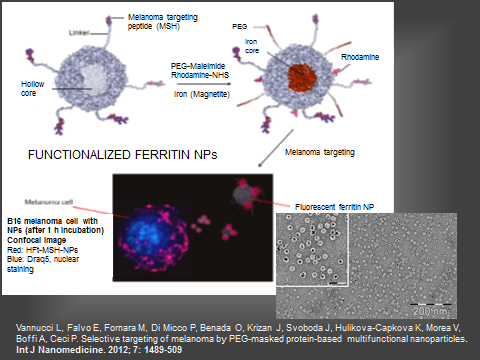
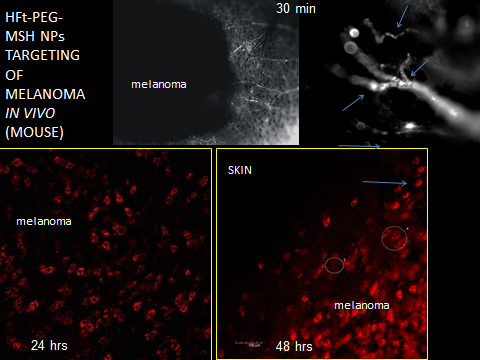
– the possibility to use physical means (hyperthermia induced by exposition to magnetic fields and / or microwaves) to modify tissues and cells of the tumor and make them better recognizable, making easier their attack by our defenses
(in collaboration with the Faculty of Electrical Engineering – Department of Electromagnetic Fields at the Czech Technical University in Prague and, in perspective, with the Institute of macromolecular Chemistry of the ASCR v.v.i.).
– the possibility to elicit or modulate the immune response (especially innate immunity) by the use of natural molecules
(e.g. beta-glucans) derived from mushrooms or other organisms.



